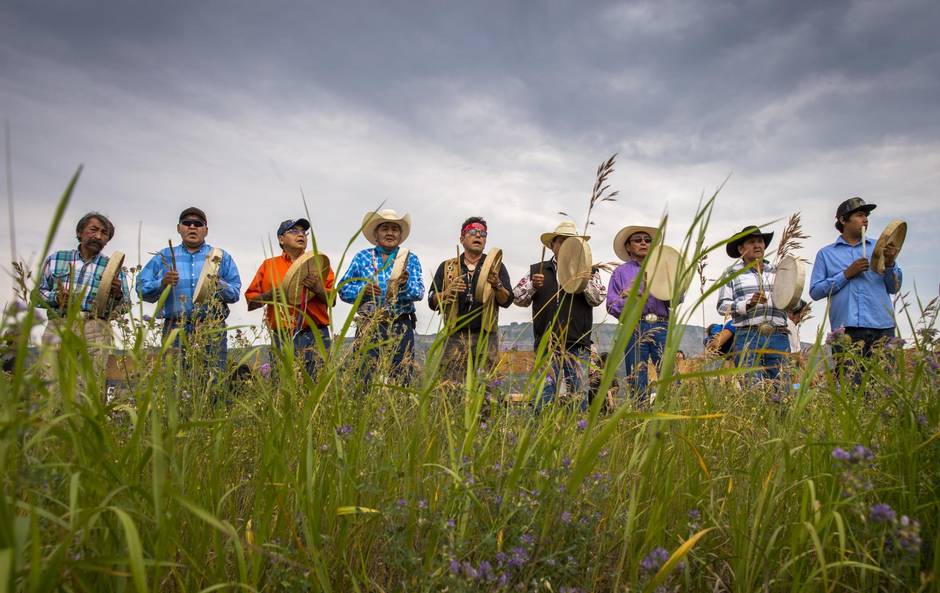NFU Urges BC Government to deny approval of Site C Dam construction

 Media Release
Media Release
(Parksville, BC – Dec. 1, 2017) – The approval process for Site C Dam is in its final stages in the context of the ambiguous conclusions of the of the British Columbia Utility Commission’s (BCUC) Site C Final Report and support expressed by construction and hydro labour unions for continuing the project. “If approval is granted for construction of the Site C dam, it has the potential to be a disaster for BC,” said National Farmers Union (NFU) Vice President (Policy), Jan Slomp of Courtenay, BC.
The NFU stands in solidarity with the First Nations Communities of Treaty 8 and the farmers of the Peace River Valley calling for a halt all construction of the Site C Dam and cancelling the project from going forward in the future.
“First Nations communities have not been properly consulted nor respected. Rewarding the previous government’s hijacking of the Peace Valley without proper procedure is wrong and must be corrected even if changing course is costly,” Slomp continued.
As Ayla Fenton, member of the NFU Indigenous Solidarity Working Group noted earlier this year, “We cannot have food sovereignty in Canada without Indigenous food sovereignty—and Indigenous self-determination in general. We need to work in solidarity with Indigenous peoples who are struggling to protect their lands and defend their rights.”
“The importance of farms, fertile farmland preservation and the long term environmental and economic benefits of the land need to be factored into the decision making process,” said Seann Dory, NFU Region 8 (BC) Regional Coordinator. “Peace Valley farmers stand to lose significant amounts of farmland and crops to Site C. The destruction of 5,900 hectares (over 14,500 acres) of prime farmland is imminent if the project moves forward.”
“The Board of the Mid Island Farmers Institute shares these concerns, and supports the NFU’s position on Site C,” said Arzeena Hamir, Vancouver Island farmer and member of both organizations.
Calculations of future hydro-electricity demand have been overestimated, as small-scale renewable energy generation has never had the logistical or political support it warrants. As reported in the Tyee, “Robert McCullough, a U.S. energy economist hired by the Peace Valley Landowners Association, a group of 70 landowners who will lose homes and property to Site C, said the cost of clean energy renewables like wind and solar is falling so rapidly around the world that the prices cited in the BCUC report are already too high and ‘obsolete’.”
“The revolutionary capacity of small-scale renewable hydro generation is on our doorstep and will fall into place when increased electricity needs, electric vehicles, or other new technologies become a reality and proper funding models for small-scale generation are politically endorsed,” Slomp added.
“Attorney General David Eby is moving toward the halting of corporate and union donations for political parties, but it is these very donors that have the most to gain from the continuation of the Site C Dam,” notes Dory. “This apparent conflict of interest needs to be removed from the government’s framework for decision making around the Site C project and all future projects.”
For more information:
Jan Slomp, NFU First Vice President (Policy), (250) 898-8223 or (403) 704-4364; email: marian.jan@gmail.com
Seann Dory, NFU Region 8 (BC) Coordinator, 778-882-5221; email: seanndory@gmail.com
Ayla Fenton, Member, NFU Indigenous Solidarity Working Group, (613) 539-3341; email: aylafenton90@gmail.com
Take Action!
Send your own message to BC Agriculture Minister, Hon. Lana Popham. Her address is Lana.Popham@leg.bc.ca Her phone number is (250) 387-1023
If you are a BC resident, call or send a message to your own MLA. Click here to find your MLA and their contact information.
For more information about implications of Site C dam, read LNG, Pipelines and Site C Dam vs Farmland Protection on page 7 of the July 2015 issue of the NFU Newsletter.
Cover Image: Drummers from Doig River First Nation drum on the Bear Flats near Fort St. John. Native people and archaeologists are concerned BC Hydro’s Site C dam project will flood the Peace River Valley, which holds centuries-old graves and trading artifacts. (John Lehmann/The Globe and Mail)
